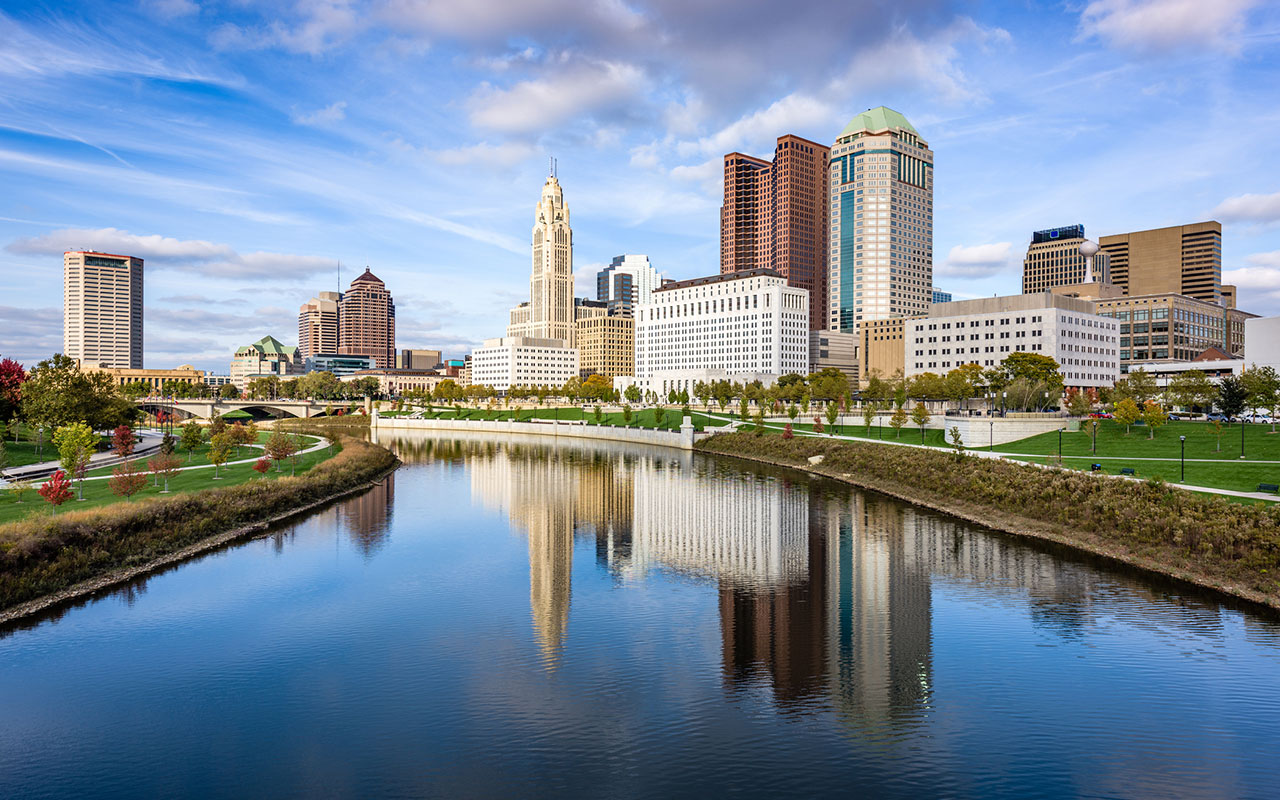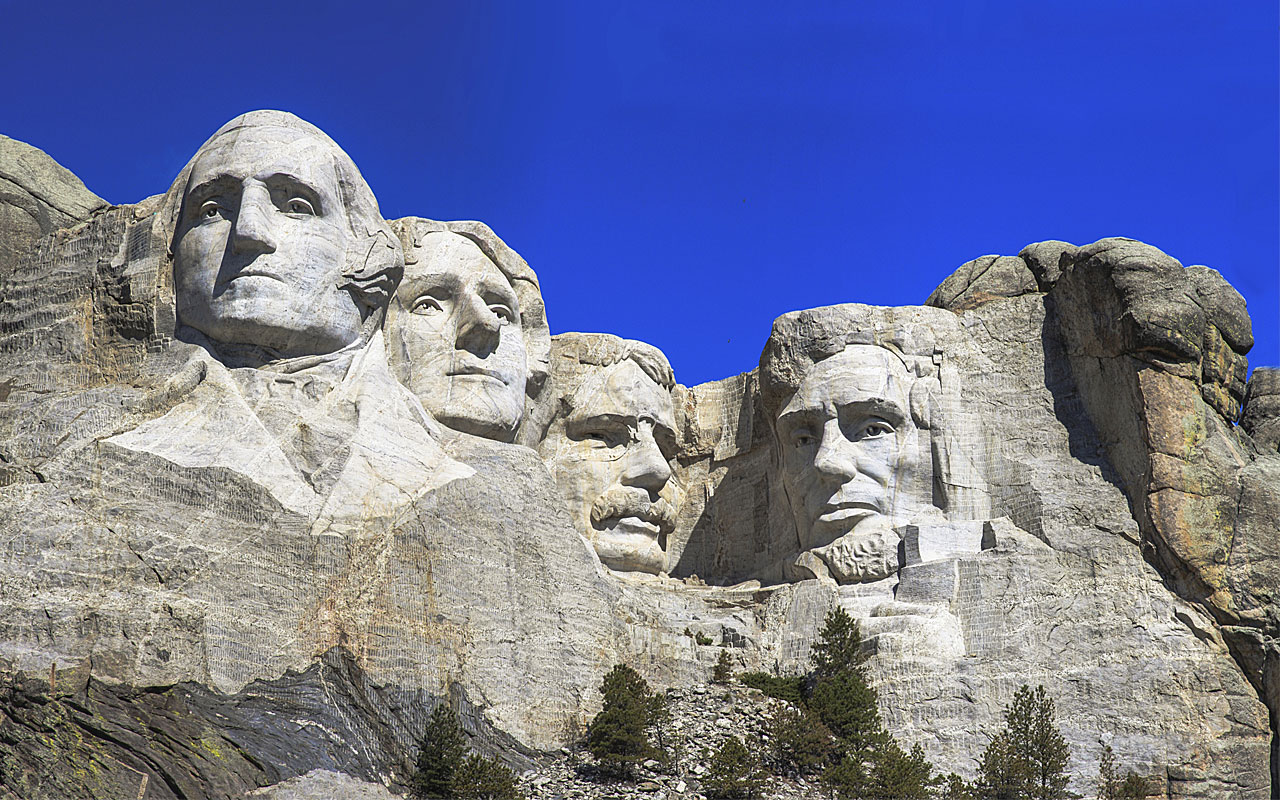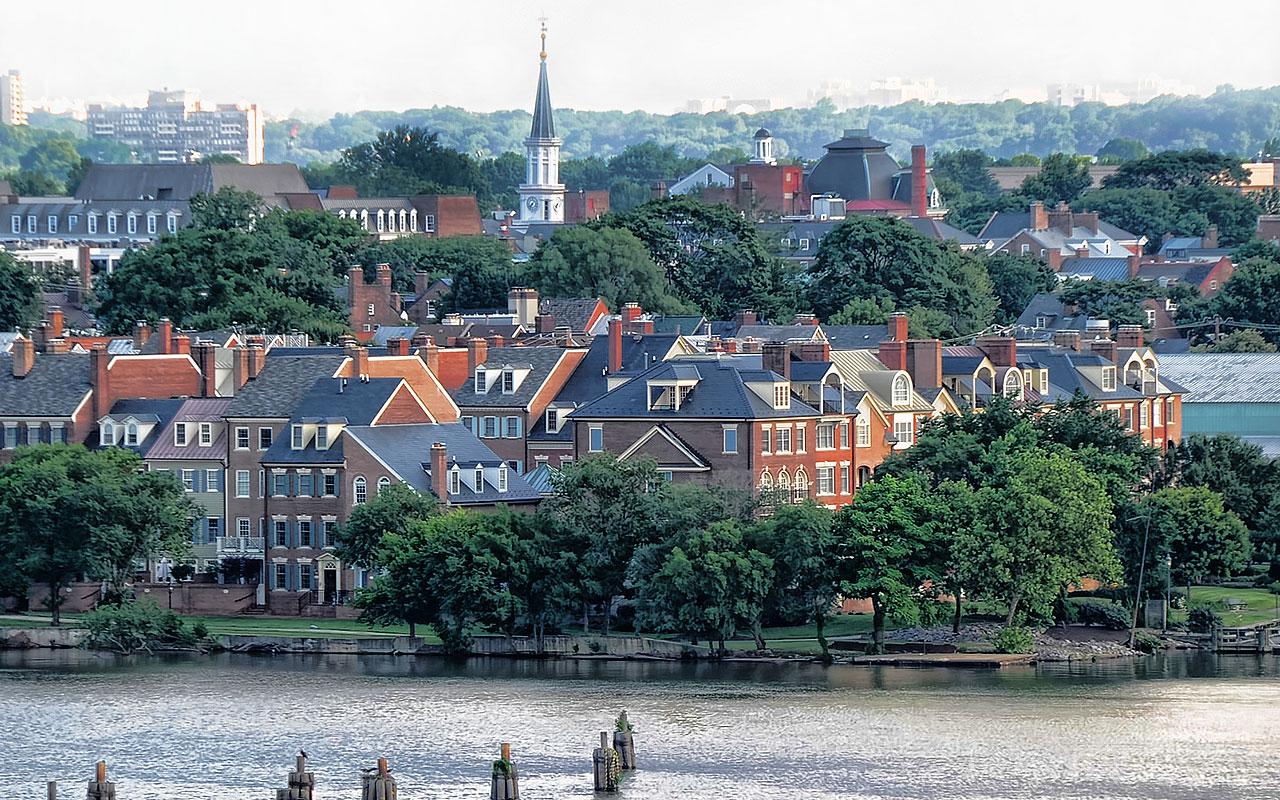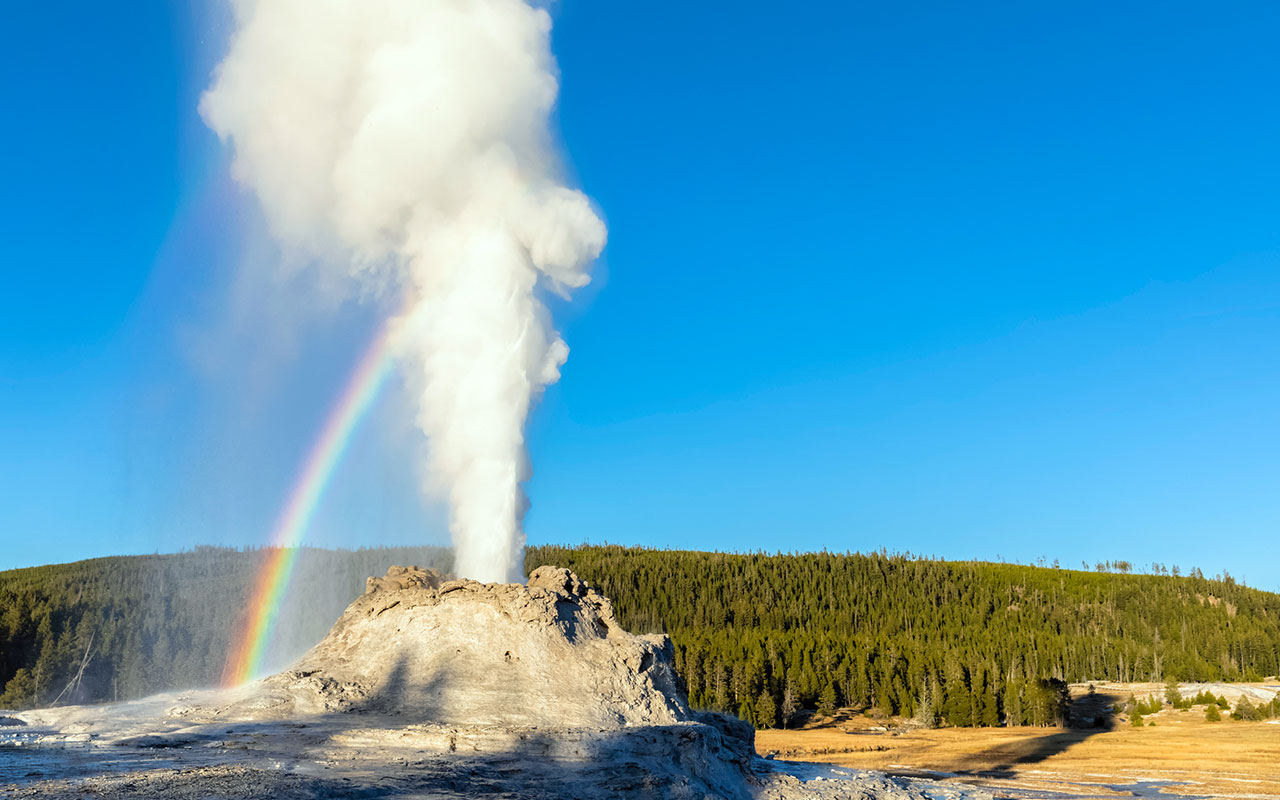Best States to Retire 2018: All 50 States Ranked for Retirement
We rank all 50 states for retirement from the best state to retire (South Dakota) to the worst state to retire (New York). Where does your state rank for retirement?


Profit and prosper with the best of Kiplinger's advice on investing, taxes, retirement, personal finance and much more. Delivered daily. Enter your email in the box and click Sign Me Up.
You are now subscribed
Your newsletter sign-up was successful
Want to add more newsletters?

Delivered daily
Kiplinger Today
Profit and prosper with the best of Kiplinger's advice on investing, taxes, retirement, personal finance and much more delivered daily. Smart money moves start here.

Sent five days a week
Kiplinger A Step Ahead
Get practical help to make better financial decisions in your everyday life, from spending to savings on top deals.

Delivered daily
Kiplinger Closing Bell
Get today's biggest financial and investing headlines delivered to your inbox every day the U.S. stock market is open.

Sent twice a week
Kiplinger Adviser Intel
Financial pros across the country share best practices and fresh tactics to preserve and grow your wealth.

Delivered weekly
Kiplinger Tax Tips
Trim your federal and state tax bills with practical tax-planning and tax-cutting strategies.

Sent twice a week
Kiplinger Retirement Tips
Your twice-a-week guide to planning and enjoying a financially secure and richly rewarding retirement

Sent bimonthly.
Kiplinger Adviser Angle
Insights for advisers, wealth managers and other financial professionals.

Sent twice a week
Kiplinger Investing Weekly
Your twice-a-week roundup of promising stocks, funds, companies and industries you should consider, ones you should avoid, and why.

Sent weekly for six weeks
Kiplinger Invest for Retirement
Your step-by-step six-part series on how to invest for retirement, from devising a successful strategy to exactly which investments to choose.
In contemplating retirement, the big question tends to be when to retire? Or, perhaps, how much money do you need to retire? But where to retire can be an equally pressing matter. In fact, according to a survey by Merrill Lynch and Age Wave (a research firm focused on the aging population), 37% of retirees have already moved in retirement and another 27% intend to. Even if you're among the rest who plan to stay put in retirement, you might find that entering a new stage of life changes the world around you, requiring a reassessment of how your home state treats your nest egg.
To help you weigh the pros and cons of each state when it comes to retirement, we ranked all 50 states based on financial factors critical to retirees, including living expenses, tax burdens, health care costs, household incomes, poverty rates and the economic wellness of the state itself. Of course, plenty of other factors figure into this major life decision, from proximity to family to climate preferences. But we'll leave assessing those personal considerations to you.
Whether you're figuring out where to head next or just how you need to adjust your budget when moving into retirement, see how every state in the union treats its retirees financially.
States are listed in alphabetical order. See "How We Ranked Every State for Retirement" at the end of the rankings for details on our data sources and methodology.

Alabama
- Ranking: #6
- Population: 4.8 million
- Share of population 65+: 15.3% (U.S.: 14.5%)
- Cost of living: 13% below the U.S. average
- Average income for 65+ households: $44,934 (U.S.: $53,799)
- Average health care costs for a retired couple: Below average at $404,922 (U.S.: $423,523)
- Tax rating for retirees: Tax Friendly
Retirees are sure to love the Heart of Dixie. You can get many of Florida's retirement attractions—warm weather, nice beaches and plenty of golf—all at a lower price. The low living costs extend to health care, for which retirees can expect to spend 4.4% less than the average retired American couple. Taxes are easy on the budget, too, with income tax rates ranging from just 2% to 5%, and Social Security benefits being exempt.

Alaska
- Ranking: #31
- Population: 736,855
- Share of population 65+: 9.4%
- Cost of living: 32% above U.S. average
- Average income for 65+ households: $59,230
- Average health care costs for a retired couple: Above average at $467,743
- Tax rating for retirees: Most Tax Friendly
The Last Frontier is the last place most people would choose as a retirement destination. In fact, only 69,305 people in the whole state are age 65 and older—making it the smallest population of seniors in the country. The folks who do brave retiring in Alaska do well, though. They pay no state income or sales tax, and eligible residents get paid an annual dividend check from the state's oil wealth savings account just for living there. In 2017, the payment was $1,100 per person. And despite the state's high living costs, the poverty rate among seniors is the lowest in the U.S. at just 4.5%.

Arizona
- Ranking: #27
- Population: 6.7 million
- Share of population 65+: 15.9%
- Cost of living: 3% above the U.S. average
- Average income for 65+ households: $47,973
- Average health care costs for a retired couple: Below average at $408,721
- Tax rating for retirees: Mixed
The Grand Canyon State, with its ample sunshine, dry heat and beautiful desert landscape, is a popular retirement destination. But the financial setting is not quite as picturesque. Despite slightly above-average living costs, the average household income for seniors falls 10.8% below the national average. The 5.6% state sales tax doesn't help, and it can be pushed as high as 10.9% in some localities—though the average is 8.25%, according to the Tax Foundation.
On the bright side, you can find pockets of affordability throughout the state. The living costs in Phoenix, for example, are 5% below average, according to the Council for Community and Economic Research. And the capital city does not charge sales tax on groceries.

Arkansas
- Ranking: #23
- Population: 3.0 million
- Share of population 65+: 15.7%
- Cost of living: 17% below average
- Average income for 65+ households: $42,482
- Average health care costs for a retired couple: Below average at $398,395
- Tax rating for retirees: Not Tax Friendly
The Natural State offers extraordinarily low costs. Indeed, it's tied with West Virginia for lowest overall living costs in the country, and its average health care costs for a retired couple are the third cheapest in the U.S. State taxes aren't quite as generous: Social Security benefits and up to $6,000 of other retirement income are exempt, but above that, your top income rate could hit 6.9%, if your income exceeds $75,000. Glass half full (not really): Most retired residents are unlikely to reach that high bracket. In fact, the average household income for people age 65 and older in Arkansas is 21% below the U.S. average. The poverty rate for seniors is 10.5%, the eighth highest in the country.

California
- Ranking: #45
- Population: 38.7 million
- Share of population 65+: 12.9%
- Cost of living: 52% above the U.S. average
- Average income for 65+ households: $65,904
- Average health care costs for a retired couple: Above average at $430,867
- Tax rating for retirees: Mixed
The Golden State sports the second-highest living costs in the country, behind only Hawaii. And though the average household income for seniors is well-above average, plenty of older residents are unable to bear the heavy burden: 1 in 10 Californians age 65 and over are living in poverty. The tax situation adds to the gravity: Except for Social Security benefits, retirement income is fully taxed, and California imposes the highest state income tax rates in the nation (the top rate is 13.3% for single filers with $1 million incomes and joint filers with incomes above $1,074,996).
One bright spot: If you're over age 65, you can claim an extra $110 exemption off your tax bill. But with a low score for fiscal soundness—the eighth worst in the country—California may not be able to afford such a generous offering in the future.

Colorado
- Ranking: #18
- Population: 5.4 million
- Share of population 65+: 12.7%
- Cost of living: 17% above U.S. average
- Average income for 65+ households: $54,108
- Average health care costs for a retired couple: Below average at $415,210
- Tax rating for retirees: Mixed
Retirees in the Centennial State may just reach 100 years themselves. Colorado ranks fourth in the United Health Foundation's senior health rankings, with particularly high marks in clinical care and positive behaviors. Among its health-related strengths, the state has low rates of obesity and physical inactivity in seniors. It also has a low poverty rate among the 65+ population at 7.4%, compared with 9.3% for the nation as a whole.

Connecticut
- Ranking: #46
- Population: 3.6 million
- Share of population 65+: 15.5%
- Cost of living: 24% above the U.S. average
- Average income for 65+ households: $68,845
- Average health care costs for a retired couple: Above average at $439,191
- Tax rating for retirees: Least Tax Friendly
The Constitution State does little to promote the general welfare of its resident retirees. In fact, Connecticut ranks among the 10 tax-unfriendliest states for retirees. Real estate taxes are the second-highest in the country. Some residents face taxes on Social Security benefits, and most other retirement income is fully taxed, with no exemptions or tax credits to ease the burden.
All those taxes come on top of high living costs. But Connecticut residents may be able to afford it: The state's average household income for seniors is the fourth-highest in the U.S., and its poverty rate for residents age 65 and older is a low 7.1% vs. 9.3% for the U.S.

Delaware
- Ranking: #15
- Population: 934,695
- Share of population 65+: 16.5%
- Cost of living: 11% above U.S. average
- Average income for 65+ households: $52,387
- Average health care costs for a retired couple: Below average at $414,416
- Tax rating for retirees: Tax Friendly
The First State offers retirees first-rate tax advantages. It does not tax Social Security benefits and exempts $12,500 of investment and qualified pension income for taxpayers age 60 and older. Above that, income tax rates are modest, ranging from 2.2% to 6.6%. Plus, there's no sales tax at all. Health care costs are also friendly to retiree budgets with a 65-year-old couple's expected to pay 2.2% less than the U.S. average. Living costs, otherwise, are relatively high—particularly considering the below-average household incomes for seniors.

Florida
- Ranking: #8
- Population: 19.9 million
- Share of population 65+: 19.1%
- Cost of living: 1% above U.S. average
- Average income for 65+ households: $51,187
- Average health care costs for a retired couple: About average at $425,025
- Tax rating for retirees: Most Tax Friendly
If you're looking to party with your peers through retirement, head to the Sunshine State. Nearly 3.8 million seniors call Florida home, giving its population the highest share of residents age 65 and older in the country. Indeed, it's famous for its retiree-haven status, what with its warm weather, beautiful beaches and seven-season-long "Golden Girls" endorsement. But the main attraction for retirees to the Sunshine State must surely be the tax situation. Florida has no state income tax, estate tax or inheritance tax, and it doesn't tax Social Security or other retirement income, either. Plus, those benefits are pretty secure: Florida scores top marks for fiscal soundness, according to a recent report from the Mercatus Center at George Mason University, in large part due to its abundance of cash versus short-term liabilities.

Georgia
- Ranking: #3
- Population: 10.1 million
- Share of population 65+: 12.3%
- Cost of living: 7% below the U.S. average
- Average income for 65+ households: $50,607
- Average health care costs for a retired couple: Below average at $404,460
- Tax rating for retirees: Most Tax Friendly
Warm weather and low living costs make Georgia just peachy for a happy retirement destination. Health care expenses are particularly affordable for retirees, with the sixth lowest average costs for a retired couple in the country. Plus, Georgia's favorable tax situation makes it one of the 10 Best States for Taxes on Retirees.

Hawaii
- Ranking: #2
- Population: 1.4 million
- Share of population 65+: 16.1%
- Cost of living: 87% above the U.S. average
- Average income for 65+ households: $71,997
- Average health care costs for a retired couple: Below average at $375,273
- Tax rating for retirees: Tax Friendly
As you'd expect on an island paradise, living ain't cheap. In fact, Hawaii sports the highest living costs in the country. And yet, the landscape turns out to be idyllic for retirees' finances. For one thing, the seniors who have settled there can afford it. The average household income for people age 65 and older are the highest in the U.S. at 33.8% above the national level. Plus, health care costs are surprisingly affordable at 11.4% below the national average. Credit that to the Aloha State's highly efficient health care system—ranked tops by Bloomberg—and its healthy population, snagging the third highest spot in the United Health Foundation's Senior Health Report rankings, which are based on people's behaviors, such as physical activity, as well as community support and clinical care available.

Idaho
- Ranking: #11
- Population: 1.6 million
- Share of population 65+: 14.3%
- Cost of living: 5% below the U.S. average
- Average income for 65+ households: $40,248
- Average health care costs for a retired couple: Below average at $407,942
- Tax rating for retirees: Mixed
Put your potato jokes away, people. Idaho has some serious advantages to offer your retirement. The state's affordability, for one thing, makes it easy to stretch your retirement savings. And while the tax picture for retirees is mixed—there's a statewide sales tax of 6% and a state income tax that can go as high as 7.4%—Social Security benefits are not subject to state taxes. Idaho also is one of the states that doesn't have an inheritance or estate tax.

Illinois
- Ranking: #43
- Population: 12.9 million
- Share of population 65+: 13.9%
- Cost of living: 4% below U.S. average
- Average income for 65+ households: $54,051
- Average health care costs for a retired couple: Above average at $435,889
- Tax rating for retirees: Mixed
The Prairie State's fiscal standing has been sliding downward for years. Illinois has weighty long-term debts, large unfunded pension liabilities and big budget imbalances. All this puts it in the second-lowest spot on the state rankings for fiscal soundness, behind only New Jersey, according to George Mason University's Mercatus Center. In October 2015, ratings agency Fitch downgraded the state's credit rating to near-junk status. That means the tax breaks on a variety of retirement income sources, including 401(k) plans and individual retirement accounts, are hardly assured, and higher taxes are on the table. Already, state and local sales taxes are as high as 11% in some areas.

Indiana
- Ranking: #38
- Population: 6.6 million
- Share of population 65+: 14.3%
- Cost of living: 15% below the U.S. average
- Average income for 65+ households: $42,303
- Average health care costs for a retired couple: About average at $425,365
- Tax rating for retirees: Least Tax Friendly
With its below-average living expenses, Indiana might seem like a winner for retirees. But when you consider the well-below-average household income—at 21.4% below average, to be exact—the older residents of the Hoosier State start looking more like underdogs. And the tax situation doesn't help: Most retirement income other than Social Security benefits is taxable at ordinary rates.

Iowa
- Ranking: #13
- Population: 3.1 million
- Share of population 65+: 15.8%
- Cost of living: 12% below U.S. average
- Average income for 65+ households: $41,194
- Average health care costs for a retired couple: Below average at $399,991
- Tax rating for retirees: Not Tax Friendly
Low living costs are the big advantage for retirees in the Hawkeye State. Health care costs are especially affordable, at 5.6% below the U.S. average, based on what a 65-year-old retired couple can expect to pay for the rest of their lives. That should help the below-average household income for seniors stretch further. But the tax situation may be burdensome: While Social Security benefits are untaxed, some retirement income may get hit by the high top rate of 8.98%. On the plus side, people age 55 or older can exclude up to $6,000 if single ($12,000 for joint filers) of taxable retirement income.

Kansas
- Ranking: #30
- Population: 2.9 million
- Share of population 65+: 14.3%
- Cost of living: 14% below average
- Average income for 65+ households: $49,392
- Average health care costs for a retired couple: Below average at $412,773
- Tax rating for retirees: Least Tax Friendly
Retirees might rather be in Oz. Among Kiplinger's least-tax-friendly states for retirees, Kansas is raising tax rates to try and tackle its increasing budget deficit. Its fiscal health earns it a 32nd ranking, according to a recent report from the Mercatus Center at the George Mason University. For 2018, income tax rates range from 3.1% to 5.7%—and that applies to most retirement income, including Social Security benefits (unless your adjusted gross income is $75,000 or less). Still, the affordable living costs might be enough to convince you that there's no place like home in Kansas.

Kentucky
- Ranking: #34
- Population: 4.4 million
- Share of population 65+: 14.8%
- Cost of living: 14% below the U.S. average
- Average income for 65+ households: $42,666
- Average health care costs for a retired couple: About average at $420,375
- Tax rating for retirees: Most Tax Friendly
Kentucky ranks as the second-worst state in the country in terms of senior health, according to the United Health Foundation. Among its challenges are a high rate of smoking, physical inactivity and poverty, as well as a low number of quality nursing homes.
On the plus side, the Bluegrass State offers low living costs, as well as a number of tax breaks for retirees. Social Security benefits, as well as up to $41,110 of other retirement income, are exempt from state taxes. However, with a low ranking of 47th in the country for fiscal soundness, those tax benefits may not be very secure.

Louisiana
- Ranking: #42
- Population: 4.6 million
- Share of population 65+: 13.6%
- Cost of living: 10% below U.S. average
- Average income for 65+ households: $50,744
- Average health care costs for a retired couple: Above average at $432,292
- Tax rating for retirees: Tax Friendly
The living costs are low in Louisiana, but so are the incomes. And health care costs still prove to be pricey with a 65-year-old couple in the state expected to pay 2.1% more than the average American couple of the same age. One driver of those high costs may be the local population's poor health. Indeed, Louisiana had the fourth lowest senior health score, according to the United Health Foundation, in part due to high rates of obesity, smoking and mental distress, as well as low availability of geriatricians and quality nursing homes. The poverty rate for people age 65 and older is also remarkably high at 12.9%, behind only Mississippi for the highest in the U.S.

Maine
- Ranking: #22
- Population: 1.3 million
- Share of population 65+: 18.2%
- Cost of living: 2% below U.S. average
- Average income for 65+ households: $40,256
- Average health care costs for a retired couple: Below average at $401,781
- Tax rating for retirees: Mixed
The Pine Tree State can be a little prickly when it comes to its retirees. While living costs are a bit below average—with health care costs for a retired couple particularly affordable at 5.1% below average—incomes for senior households are even lower, averaging 25.2% below the typical U.S. level. And tax breaks do little to boost retirement budgets: While Social Security benefits are not subject to state taxes, most other retirement income is taxable. There's even an estate tax, though it only applies to estates worth more than $11.18 million in 2018.

Maryland
- Ranking: #48
- Population: 6.0 million
- Share of population 65+: 13.8%
- Cost of living: 17% above U.S. average
- Average income for 65+ households: $70,874
- Average health care costs for a retired couple: Above average at $436,074
- Tax rating for retirees: Least Tax Friendly
Retirees in Maryland are bound to be crabby. The average household income for people age 65 and older is the second-highest in the country—but it gets pinched plenty by high taxes and living costs. The Free State doesn't tax Social Security benefits, but distributions from individual retirement accounts are fully taxable. And the taxes keep coming even after you pass: Maryland is the only state that has an estate and an inheritance tax, albeit only at lofty thresholds with the former only applying to estates exceeding $4 million in value in 2018.

Massachusetts
- Ranking: #49
- Population: 6.7 million
- Share of population 65+: 15.1%
- Cost of living: 38% above the U.S. average
- Average income for 65+ households: $65,312
- Average health care costs for a retired couple: Above average at $450,383
- Tax rating for retirees: Not Tax Friendly
The Bay State harbors some heavy costs for retirees. On top of the third-highest overall living costs in the country, it also holds the second-highest health-care costs for a 65-year-old couple, trailing only Alaska. And though the average household income for seniors is high, taxes can take a big bite out of those earnings. Social Security benefits are exempt, but most other retirement income is taxed at the state's flat rate of 5.15%. Plus, given its low fiscal wellness—the third-worst in the U.S., according to Mercatus Center at George Mason University—the tax situation is likely to get harsher before it gets friendlier to retirees.

Michigan
- Ranking: #35
- Population: 9.9 million
- Share of population 65+: 15.4%
- Cost of living: 12% below U.S. average
- Average income for 65+ households: $44,397
- Average health care costs for a retired couple: About average at $423,608
- Tax rating for retirees: Not Tax Friendly
The Great Lakes State can make for a decent retirement destination. It offers some of the lowest living costs in the country and maintains a low poverty rate among seniors at 8.1%, compared with 9.3% for the U.S. The tax situation, though, is not so great—and a bit complicated. Social Security benefits are not currently taxed, but starting in 2020, taxpayers turning 67 will have to choose between deducting Social Security income or $20,000 of all income sources for single filers ($40,000 for couples).

Minnesota
- Ranking: #33
- Population: 5.5 million
- Share of population 65+: 14.3%
- Cost of living: 4% above the U.S. average
- Average income for 65+ households: $47,838
- Average health care costs for a retired couple: About average at $422,815
- Tax rating for retirees: Least Tax Friendly
The Land of 10,000 Lakes is a hard place for retirees to stay afloat. Above-average living expenses and below-average incomes can equate to imbalanced budgets in retirement. Plus, the tax situation adds an extra burden. One of the 10 Worst States for Taxes on Retirees, Minnesota taxes Social Security benefits to the same extent as the federal government. Most other retirement income, including military, government and private pensions, is also taxable. And the state's sales and income taxes are high.
On the other hand, Minnesota is a great place for health-focused retirees. The state is the healthiest in the country for seniors, according to the United Health Foundation rankings.

Mississippi
- Ranking: #29
- Population: 3.0 million
- Share of population 65+: 14.3%
- Cost of living: 15% below U.S. average
- Average income for 65+ households: $44,100
- Average health care costs for a retired couple: About average at $423,267
- Tax rating for retirees: Most Tax Friendly
Low costs and generous tax breaks make the Magnolia State a sweet deal for retirees. Social Security and other qualified retirement income—including distributions from IRAs, 401(k)s and other plans—are not taxed, and property taxes are among the lowest in the country. But on the sour side, Mississippi ranks dead last when it comes to senior health, according to the United Health Foundation. It also suffers the worst poverty rate in the country among people age 65 and older at a whopping 13.4%; the U.S., 9.3%.

Missouri
- Ranking: #20
- Population: 6.1 million
- Share of population 65+: 15.4%
- Cost of living: 10% below U.S. average
- Average income for 65+ households: $43,540
- Average health care costs for a retired couple: Below average at $408,746
- Tax rating for retirees: Mixed
The Show Me State has little to tell in the way of retirement advantages. The low living costs go hand in hand with relatively low household incomes. And the tax situation is moderate: If your adjusted gross income is less than $85,000 for single filers ($100,000 for couples filing jointly), your Social Security benefits are not taxed and you can deduct a portion of your public retirement benefits. But distributions from individual retirement accounts, 401(k)s and other employer retirement plans are taxable at ordinary income tax levels, which hits the top rate of 6% on more than just $9,000 of taxable income.
And one notable downside: Missouri ranks low at 42nd in the nation for senior health with a high percentage of low-care nursing home residents and a high prevalence of smoking, according to the United Health Foundation.

Montana
- Ranking: #36
- Population: 1.0 million
- Share of population 65+: 16.7%
- Cost of living: 3% above the U.S. average
- Average income for 65+ households: $42,367
- Average health care costs for a retired couple: Below average at $413,031
- Tax rating for retirees: Not Tax Friendly
You may have a hard time holding onto your fortune in the Treasure State. Living costs are above average, but incomes are 21.2% below average. The tax situation certainly doesn't help: Montana taxes most forms of retirement income, including Social Security, and the top rate of 6.9% kicks in once taxable income tops just $17,400.
Still, Big Sky Country seems to retain a large number of retirement-age folks: The state's 65-and-older population share is the fifth highest in the U.S. The great (albeit cold) outdoors, including Yellowstone and Glacier national parks, may be what trumps the state's drawbacks for adventurous retirees.

Nebraska
- Ranking: #21
- Population: 1.9 million
- Share of population 65+: 14.4%
- Cost of living: 12% below U.S. average
- Average income for 65+ households: $45,215
- Average health care costs for a retired couple: Below average at $418,079
- Tax rating for retirees: Least Tax Friendly
The Cornhusker State collects its fair share of taxes from resident retirees—perhaps more than its fair share. Most forms of retirement income are taxable at ordinary income rates, though Social Security benefits are exempt for joint filers with an adjusted gross income of $58,000 or less or $43,000 for single filers. It seems like the state could afford to be more generous: Its fiscal health ranks sixth in the U.S., according to the Mercatus Center at the George Mason University.

Nevada
- Ranking: #25
- Population: 2.8 million
- Share of population 65+: 14.1%
- Cost of living: 4% above U.S. average
- Average income for 65+ households: $52,239
- Average health care costs for a retired couple: Above average at $429,243
- Tax rating for retirees: Most Tax Friendly
Retiring to Nevada can be a gamble. Pro: No state income tax means you get to keep more of your cash. Con: You'll need it to cover higher than average expenses. Plenty of people make it work. Seniors in the Silver State have a relatively low poverty rate of 8.4%, compared with the national average of 9.3%.

New Hampshire
- Ranking: #9
- Population: 1.3 million
- Share of population 65+: 15.9%
- Cost of living: 18% above U.S. average
- Average income for 65+ households: $53,204
- Average health care costs for a retired couple: $424,052
- Tax rating for retirees: Most Tax Friendly
The Granite State's current tax situation gives retirees a solid advantage. Ranking among the 10 Most Tax-Friendly States for Retirees, it doesn't tax Social Security benefits or other retirement income or levy any sales tax. That savings helps balance out the above-average living costs and below-average household incomes. Another plus: New Hampshire ranks fifth in the U.S. for senior health, according to the United Health Foundation.

New Jersey
- Ranking: #47
- Population: 8.9 million
- Share of population 65+: 14.7%
- Cost of living: 27% above the U.S. average
- Average income for 65+ households: $69,710
- Average health care costs for a retired couple: Above average at $440,299
- Tax rating for retirees: Mixed
Retirees planning to plant themselves in the Garden State might want to think twice. Living costs are the fifth-highest in the country, with retiree health care costs ranking third-highest. Plus, property taxes rank highest in the nation—a negative made even worse with the new tax law limiting how much of such tax payments is deductible. To top it off, with the worst ranking for fiscal soundness in the U.S., New Jersey's tax picture is unlikely to improve soon.
Still, residents seem to bear the burden well. The average income for 65-and-up residents is the third-highest in the U.S., and the poverty rate for the age group is a low 8.1% (9.3% nationwide).

New Mexico
- Ranking: #39
- Population: 2.1 million
- Share of population 65+: 15.3%
- Cost of living: 5% below U.S. average
- Average income for 65+ households: $46,836
- Average health care costs for a retired couple: Below average at $380,164
- Tax rating for retirees: Least Tax Friendly
The Land of Enchantment is not such a magical place for retirees. The tax breaks, for one thing, leave something to be desired: Social Security benefits are subject to tax by the state, as are retirement account distributions and pension payouts, though low-income seniors may qualify for a retirement-income exemption of up to $8,000. Unfortunately, plenty of people may be able to take advantage of that break, after all. The poverty rate for people 65 and older is 11.9%, the third highest in the country.

New York
- Ranking: #50
- Population: 19.7 million
- Share of population 65+: 14.7%
- Cost of living: 22% above the U.S. average
- Average income for 65+ households: $67,140
- Average health care costs for a retired couple: Above average at $433,347
- Tax rating for retirees: Not Tax Friendly
One (pricey) Big Apple spoils the entire Empire State. Manhattan reigns as the most expensive place to live in the U.S., with costs soaring 138.6% above the national average, according to the Council for Community and Economic Research. However, New York state's relatively lower average cost of living means you can find more affordable spots outside the city: Brooklyn, for example, is “just” 82% more expensive than the average U.S. metro area, and Rochester and Utica actually offer below-average living costs.
Despite boasting an average income for residents age 65 and older that's among the top five in the country, the same age group suffers a poverty rate of 11.4%, worse than the national 9.3% rate and tied with Kentucky for the fourth-highest rate in the country.

North Carolina
- Ranking: #28
- Population: 9.9 million
- Share of population 65+: 14.7%
- Cost of living: 5% below average
- Average income for 65+ households: $43,616
- Average health care costs for a retired couple: Below average at $406,849
- Tax rating for retirees: Not Tax Friendly
Its weather is mild, as is its financial attractiveness as a retirement destination. The Tar Heel State offers below-average costs across most metro areas, with the Kill Devil Hills micro area (part of the Outer Banks) being one pricey exception, according to the Council for Community and Economic Research. But income levels are typically lower, too. And though Social Security benefits are still not taxable, other breaks for retirees have been eliminated, leaving most other retirement income taxable at the current flat rate of 5.49%.

North Dakota
- Ranking: #4
- Population: 736,162
- Share of population 65+: 14.2%
- Cost of living: 1% above U.S. average
- Average income for 65+ households: $46,763
- Average health care costs for a retired couple: Below average at $414,455
- Tax rating for retirees: Tax Friendly
Cross the border from South Dakota, our top state for retirement, and you'll find many of the same benefits: North Dakota offers retirees affordable living costs and overall low taxes. Unfortunately, retirement income, including Social Security benefits, gets no tax break in the Peace Garden State. But income taxes are so low—ranging from 1.1% to 2.9%—that it's still considered tax friendly. Plus, the state ranks second-highest for fiscal soundness, indicating that the economic health is stable enough to sustain a friendly tax environment.

Ohio
- Ranking: #19
- Population: 11.6 million
- Share of population 65+: 15.5%
- Cost of living: 12% below U.S. average
- Average income for 65+ households: $42,667
- Average health care costs for a retired couple: Below average at $417,912
- Tax rating for retirees: Mixed
Ohio's status as a destination for retirees matches its geographic location: in the middle. Its living costs are well below average, but so is its average household income. Even the tax situation is just fine: Social Security benefits are not taxed, and retirees living in the Buckeye State can claim a tax credit of up to $200 on other retirement income.

Oklahoma
- Ranking: #26
- Population: 3.9 million
- Share of population 65+: 14.5%
- Cost of living: 16% below U.S. average
- Average income for 65+ households: $46,848
- Average health care costs for a retired couple: About average at $420,195
- Tax rating for retirees: Not Tax Friendly
The Sooner State is a middle-of-the-road retirement destination. Household incomes are relatively low, but so are overall living costs. The tax situation helps somewhat: Social Security benefits are not taxed, and you can exclude up to $10,000 per person of other retirement income. On the downside, Oklahoma is the third-worst state in terms of senior health, according to the United Health Foundation's rankings, which took into account quality of health care facilities, physical behaviors of resident seniors and a host of other health-related criteria. Problem areas for Oklahoma include: high levels of physical inactivity and smoking among seniors, as well as low availability of geriatricians and quality nursing homes.

Oregon
- Ranking: #32
- Population: 4.0 million
- Share of population 65+: 15.9%
- Cost of living: 18% above U.S. average
- Average income for 65+ households: $45,255
- Average health care costs for a retired couple: Below average at $412,398
- Tax rating for retirees: Not Tax Friendly
Taxes in the Beaver State gnaw away at fixed incomes. It charges no sales tax, but Oregon levies one of the highest top state income tax rates in the U.S., at 9.9%. And although Social Security benefits are exempt, most other retirement income is taxable. Not that there's much to tax. Oregon seniors bring in below-average household incomes—15.9% less than the national average of $53,799. And despite those low incomes, overall living costs are high. One bright, cheap spot: Health care costs for a retired couple in Oregon are typically 2.6% lower than the U.S. average.

Pennsylvania
- Ranking: #14
- Population: 12.8 million
- Share of population 65+: 16.7%
- Cost of living: 3% below U.S. average
- Average income for 65+ households: $48,706
- Average health care costs for a retired couple: Below average at $411,414
- Tax rating for retirees: Most Tax Friendly
The Keystone State locks in an affordable standard of living for retirees. Health care costs for a 65-year-old retired couple come in 2.9% below the national average. And the tax situation, among the 10 friendliest in the U.S. for retirees, can boost your bottom line even more: Most retirement income, including Social Security benefits, is not taxed. Unfortunately, Pennsylvania's own budget is not so sturdy. With not enough cash to cover short- or long-term obligations, its fiscal health ranks a low 45th among all 50 states, according to rankings from the Mercatus Center at the George Mason University.

Rhode Island
- Ranking: #44
- Population: 1.1 million
- Share of population 65+: 15.8%
- Cost of living: 22% above the U.S. average
- Average income for 65+ households: $55,674
- Average health care costs for a retired couple: Above average at $428,144
- Tax rating for retirees: Not Tax Friendly
Tiny Rhode Island packs in big costs. Living expenses across the board are well above average with health care costs for a 65-year-old couple 1.1% higher than average. At least above-average incomes for older residents can make those burdensome costs a bit more bearable. Also, the tax situation has been improving—the Ocean State no longer taxes Social Security benefits for single filers with up to $80,000 in adjusted gross income and joint filers with up to $100,000 in AGI. And up to the first $15,000 of retirement income may be exempt for retirees, depending on income levels. Still, the updated tax situation is not enough to move it out of not-friendly territory for retirees.

South Carolina
- Ranking: #12
- Population: 4.8 million
- Share of population 65+: 15.8%
- Cost of living: 7% below the U.S. average
- Average income for 65+ households: $43,340
- Average health care costs for a retired couple: Below average at $408,343
- Tax rating for retirees: Tax Friendly
If the mild weather and southern charm of the Palmetto State aren't enough of a retirement draw, surely the affordability can tempt you. On top of below-average living costs, the tax situation goes easy on a fixed income, too. South Carolina doesn't tax Social Security benefits and offers generous exemptions on other types of retirement income. It also does not levy an inheritance or estate tax. Property taxes tend to be very low.

South Dakota
- Ranking: #1
- Population: 851,058
- Share of population 65+: 15.2%
- Cost of living: 4% below the U.S. average
- Average income for 65+ households: $43,712
- Average health care costs for a retired couple: Below average at $415,297
- Tax rating for retirees: Most Tax Friendly
The Mount Rushmore State might not be the first place that comes to mind when you dream of where to retire, but it's first place on our list. Affordability is the main factor pushing it to the top spot. In addition to low living expenses, including for health care, South Dakota is one the 10 Best States for Taxes on Retirees. And you can be confident it'll stay that way. The state ranks third in the country for fiscal soundness, according to a recent report from George Mason University's Mercatus Center, which indicates high confidence that it can keep up with short-term expenses and long-term financial obligations.

Tennessee
- Ranking: #5
- Population: 6.5 million
- Share of population 65+: 15.0%
- Cost of living: 12% below the U.S. average
- Average income for 65+ households: $47,891
- Average health care costs for a retired couple: Below average at $411,617
- Tax rating for retirees: Tax Friendly
The Volunteer State is a good choice for budget-conscious retirees. According to data from the Council for Community and Economic Research, every major metro area offers below-average living costs in almost every category of expenses, including health care—among the biggest financial concerns for aging Americans. Plus, Tennessee does not levy state income taxes, so your retirement income can stretch even further. And being economically healthy, Tennessee should have no issues maintaining its tax-friendliness; it ranks eighth of all states for fiscal soundness, according to a recent report from the Mercatus Center.

Texas
- Ranking: #24
- Population: 27.0 million
- Share of population 65+: 11.5%
- Cost of living: 10% below U.S. average
- Average income for 65+ households: $55,383
- Average health care costs for a retired couple: Above average at $430,561
- Tax rating for retirees: Tax Friendly
Living expenses in the Lone Star state are typically low, but health care costs are an exception. In fact, the amount a 65-year-old retired couple can expect to pay for these costs is 1.7% more than the U.S. average. On the bright side, incomes are also relatively high and go untaxed by the state. Still, not everyone can afford Texas: The state has a poverty rate of 10.8% for seniors, the sixth highest in the U.S.

Utah
- Ranking: #10
- Population: 2.9 million
- Share of population 65+: 10.0%
- Cost of living: 4% above the U.S. average
- Average income for 65+ households: $53,211
- Average health care costs for a retired couple: Below average at $412,641
- Tax rating for retirees: Least Tax Friendly
The Beehive State is a sweet spot for active retirees. Utah ranks second in the U.S. for the overall health of its 65-plus population, according to the United Health Foundation, and offers plenty of outdoor recreation options that are sure to keep you buzzing through retirement. There are five national parks, seven national monuments, five national forests and 43 state parks to host all your hiking, climbing, boating and skiing desires.
Maybe the activity can distract you from the state's unfriendly tax laws—Utah is one of the few states that taxes Social Security benefits, for example. Still, the tax man isn't keeping Utah's seniors down: Even with income levels for older adults just about average for the U.S., the state has the third-lowest poverty rate in the country for people 65 and older.

Vermont
- Ranking: #40
- Population: 626,249
- Share of population 65+: 17.0%
- Cost of living: 12% above the U.S. average
- Average income for 65+ households: $45,755
- Average health care costs for a retired couple: Below average at $408,038
- Tax rating for retirees: Least Tax Friendly
Steep living costs and taxes weigh heavily on below-average incomes in the Green Mountain State. Social Security benefits, as well as most other forms of retirement income, are subject to state taxes, and the top income tax rate is a high 8.95% (which kicks in at $416,500 for single filers and $421,900 for joint filers).
On a positive note, Vermont ranks eighth in the country in terms of senior health, according to the United Health Foundation's rankings.

Virginia
- Ranking: #7
- Population: 8.3 million
- Share of population 65+: 13.8%
- Cost of living: 7% above U.S. average
- Average income for 65+ households: $59,869
- Average health care costs for a retired couple: Below average at $408,950
- Tax rating for retirees: Tax Friendly
Virginia is for retirees. Overall living costs are above average, but high household incomes among seniors—11.3% higher than the national average of $53,799, to be exact—should be able to cover the spread. Plus, health care costs, a particularly worrying budget item for retirees, actually tend to be relatively affordable, with a retired couple in the state expected to pay 3.4% less than the average couple in the U.S. Plus, the Old Dominion doesn't tax Social Security benefits and allows residents 65 and older to deduct income up to $12,000 per person, depending on their income levels.

Washington
- Ranking: #16
- Population: 7.1 million
- Share of population 65+: 14.0%
- Cost of living: 21% above the U.S. average
- Average income for 65+ households: $55,577
- Average health care costs for a retired couple: About average at $420,480
- Tax rating for retirees: Tax Friendly
The Evergreen State can be a great place to stay refreshed throughout retirement. Washington boasts more than 3,000 miles of coastline and two major mountain ranges: the Cascades and the Olympic Mountains. So active retirees have plenty of opportunities to boat, swim, climb, hike and more. No wonder the state ranks second in the nation (after California) for physically active seniors, according to the United Health Foundation's senior health rankings report.

West Virginia
- Ranking: #37
- Population: 1.8 million
- Share of population 65+: 17.8%
- Cost of living: 17% below the U.S. average
- Average income for 65+ households: $40,109
- Average health care costs for a retired couple: Below average at $404,606
- Tax rating for retirees: Not Tax Friendly
Despite its below-average living costs, the Mountain State offers some rocky terrain for retirees. Retirement income, including Social Security, is taxed to the same extent as it is on your federal form—though the first $8,000 is exempt. And given the state's fiscal health, its tax situation is unlikely to get friendlier: According to a recent report from the Mercatus Center at George Mason University, West Virginia ranks as the ninth-worst state in terms of fiscal soundness.
The state also scores poorly for the health of its 65-and-over population, ranking 45th in the country, according to the United Health Foundation. While 64.6% of older adults nationwide are considered able-bodied, only 56.6% of those in West Virginia can say the same—the worst in the U.S.

Wisconsin
- Ranking: #41
- Population: 5.8 million
- Share of population 65+: 15.2%
- Cost of living: 4% below U.S. average
- Average income for 65+ households: $40,011
- Average health care costs for a retired couple: About average at $423,978
- Tax rating for retirees: Least Tax Friendly
Wisconsin seniors suffer the lowest average household income in the nation. And yet, the living costs are only a bit below average, and a 65-year-old couple actually faces slightly higher-than-average health care costs in retirement. And taxes only make the situation worse: Social Security benefits are exempt from state taxes, but most other retirement income is subject to taxation (though there are some breaks for low-income residents).

Wyoming
- Ranking: #17
- Population: 583,029
- Share of population 65+: 13.8%
- Cost of living: Same as U.S. average
- Average income for 65+ households: $45,305
- Average health care costs for a retired couple: Above average at $430,916
- Tax rating for retirees: Most Tax Friendly
The Equality State knows how to keep an even budget. It ranks fifth in the nation for its fiscal health, holding more than enough cash to cover its obligations (thanks to plenty of revenues from oil and mineral rights), according to the Mercatus Center. That bodes well for its ability to maintain its generous tax benefits for retirees and all its residents. There's no state income tax at all, and the state sales tax is a modest 4.5%.

How We Ranked Every State for Retirement
To rank all 50 states for retirement, we weighed a number of factors:
- Taxes on retirees, based on Kiplinger's Retiree Tax Map, which divides states into five categories: Most Tax Friendly, Tax Friendly, Mixed, Not Tax Friendly and Least Tax Friendly.
- Cost-of-living for each state, with data provided by Sperling's Best Places, includes overall costs—across all age groups—for housing, food and groceries, transportation, utilities, health care and miscellaneous expenses.
- Average health care costs in retirement are from HealthView Services and include Medicare, supplemental insurance, dental insurance and out-of-pocket costs for a 65-year-old couple who are both retired and are expected to live to 87 (husband) and 89 (wife).
- Rankings of each state's economic health are provided by the Mercatus Center at George Mason University and are based on various factors including state governments' revenue sources, debts, budgets and abilities to fund pensions, health-care benefits and other services.
- Rankings of the health of each state's population of residents 65 and over are from the United Health Foundation and are based on 34 factors ranging from residents' bad habits (smoking and excessive drinking) to the quality of hospital and nursing home care available in the state.
- Household incomes and poverty rates are from the U.S. Census Bureau.
- Population data, including the percentage of the population that is age 65 and older, is also provided by the Census Bureau. They are highlighted in these rankings for the benefit of readers, but were not factors in our methodology for ranking the states.
Profit and prosper with the best of Kiplinger's advice on investing, taxes, retirement, personal finance and much more. Delivered daily. Enter your email in the box and click Sign Me Up.

Rapacon joined Kiplinger in October 2007 as a reporter with Kiplinger's Personal Finance magazine and became an online editor for Kiplinger.com in June 2010. She previously served as editor of the "Starting Out" column, focusing on personal finance advice for people in their twenties and thirties.
Before joining Kiplinger, Rapacon worked as a senior research associate at b2b publishing house Judy Diamond Associates. She holds a B.A. degree in English from the George Washington University.
-
 Dow Adds 1,206 Points to Top 50,000: Stock Market Today
Dow Adds 1,206 Points to Top 50,000: Stock Market TodayThe S&P 500 and Nasdaq also had strong finishes to a volatile week, with beaten-down tech stocks outperforming.
-
 Ask the Tax Editor: Federal Income Tax Deductions
Ask the Tax Editor: Federal Income Tax DeductionsAsk the Editor In this week's Ask the Editor Q&A, Joy Taylor answers questions on federal income tax deductions
-
 States With No-Fault Car Insurance Laws (and How No-Fault Car Insurance Works)
States With No-Fault Car Insurance Laws (and How No-Fault Car Insurance Works)A breakdown of the confusing rules around no-fault car insurance in every state where it exists.
-
 States That Tax Social Security Benefits in 2026
States That Tax Social Security Benefits in 2026Retirement Tax Not all retirees who live in states that tax Social Security benefits have to pay state income taxes. Will your benefits be taxed?
-
 What to Do With Your Tax Refund: 6 Ways to Bring Growth
What to Do With Your Tax Refund: 6 Ways to Bring GrowthUse your 2024 tax refund to boost short-term or long-term financial goals by putting it in one of these six places.
-
 What Does Medicare Not Cover? Eight Things You Should Know
What Does Medicare Not Cover? Eight Things You Should KnowMedicare Part A and Part B leave gaps in your healthcare coverage. But Medicare Advantage has problems, too.
-
 12 Great Places to Retire in the Midwest
12 Great Places to Retire in the MidwestPlaces to live Here are our retirement picks in the 12 midwestern states.
-
 15 Cheapest Small Towns to Live In
15 Cheapest Small Towns to Live InThe cheapest small towns might not be for everyone, but their charms can make them the best places to live for plenty of folks.
-
 Best Cold Weather Places to Retire
Best Cold Weather Places to RetirePlaces to live Some like it hot; others, not so much. Here are the 12 best places to retire if you can't stand the heat.
-
 15 Reasons You'll Regret an RV in Retirement
15 Reasons You'll Regret an RV in RetirementMaking Your Money Last Here's why you might regret an RV in retirement. RV-savvy retirees talk about the downsides of spending retirement in a motorhome, travel trailer, fifth wheel, or other recreational vehicle.
-
 The 24 Cheapest Places To Retire in the US
The 24 Cheapest Places To Retire in the USWhen you're trying to balance a fixed income with an enjoyable retirement, the cost of living is a crucial factor to consider. Is your city the best?
